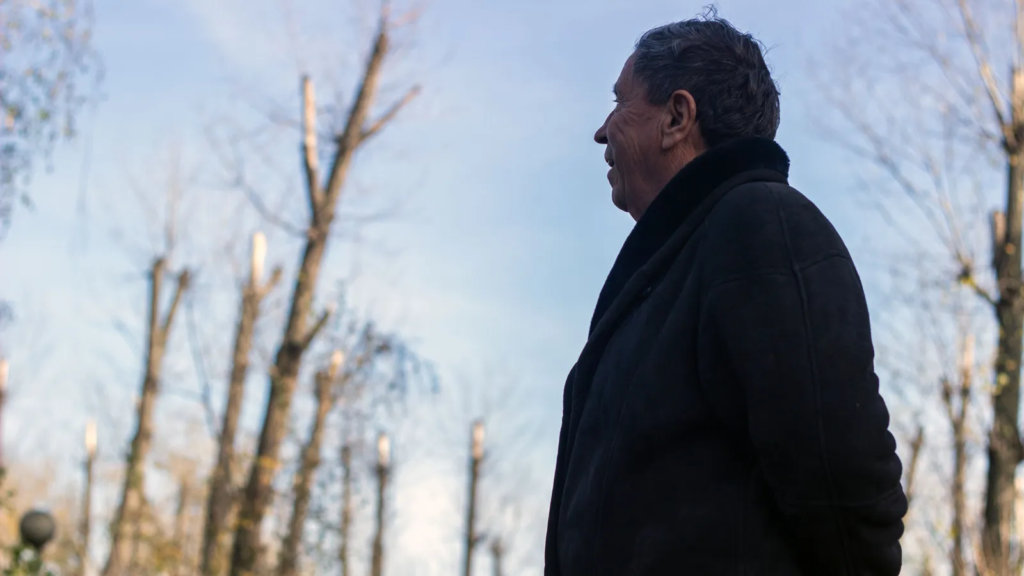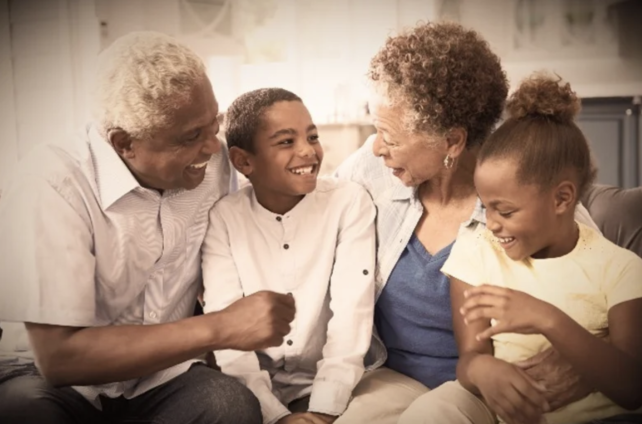Helen hasn’t spoken with her son in more than a year. The last she heard, he was in prison. Now aged 31, he’s been addicted to opioids for more than a decade.
“He’s tried to call me, probably to ask for money, and I have not been picking up,” explains Helen, who lives in England. “Right now, that’s the right decision for my safety and sanity.” As the primary caregiver for her son’s young daughter, Helen’s focus is providing a loving and secure environment for her to grow up in.
Helen remembers her son as an impulsive and destructive child, but with a wicked sense of humour and a kind heart. So, she was confused when, as a teenager, “his behaviour turned hostile and he started locking himself in the toilet for hours at a time”, she recalls. “When I confronted him, he’d tell me I was the mad one, the one on drugs. Sometimes, I wanted to laugh, it was so ridiculous.”
When Helen found out he was using heroin, she didn’t know where to turn. He would disappear for days, returning with all kinds of injuries. When he was at home, he was difficult to be around. “He never hit me, but would often destroy the flat in anger – there’s still a hole in the corridor where he kneed it,” she explains.
At work, she was paid in cash, which she says her son began taking from her wallet. Not wanting to say anything in case he got violent, she began keeping the money in a belt around her waist. “I said my earnings were going straight into an account so I could get a better credit rating,” she says. She ultimately felt unsafe living with someone deep in an addiction, and cut contact with him.
The relationship between a parent and their child is expected to be lifelong – a fruitful, loving bond that can survive any highs and lows. However, for some parents, maintaining this connection can be difficult. Eventually, a parent might feel they have reached a point of no return, and so choose to step away from their role.

In an increasingly polarised world, conversations about children who stop speaking to their parents have become common. Yet it also happens the other way around, even if the discourse is less frequent. This may be in part because data indicates parents severing ties with their children is rarer: a 2015 study conducted by the British estrangement charity Stand Alone showed that 5% of estranged parents had initiated it themselves.
The decision is already difficult and painful, and those who experience this estrangement say its relative rarity makes it especially isolating, and can add to stigma for those who choose to pursue this path.
‘Unconditional love can be problematic’
“In both research and popular culture, we rarely hear from parents who estrange themselves from their children because it’s so taboo, and there are very few non-judgemental places to speak openly about the experience,” explains Lucy Blake, a senior lecturer in psychology at University of the West England, Bristol, who specialises in estrangement.
The reasons parents end relationships with their children are similar to the reasons kids cut off their parents: according to Blake, among the most common cited are family conflict, differences in personal values (such as religious beliefs), substance abuse and other toxic behaviour. The Stand Alone research showed that for relationship breakdowns with sons, issues linked to divorce, in-laws and marriage were the most widely reported drivers; while with daughters, mental-health problems and emotional abuse were more common.
Yet this decision to fracture with children tends to be far more trying and ultimately difficult. Societally, parents are expected to cherish and care for offspring without exception. “We have very high, almost godlike expectations of a parent, where we want them to be unconditionally loving,” explains Blake. “This can be quite problematic, as it suggests they should accept any kind of treatment, including all kinds of psychological and financial abuse.”
This is perhaps why, even when their children are hurting them, parents struggle to let go. Jennifer Storey, a psychology lecturer at the University of Kent, UK, who specialises in interpersonal violence, finds that in most of her interviews with victims of elder abuse, parents are still worried and sad for their children. “I am struggling to remember one parent who really wanted to cut their child off – they almost always wanted the relationship to continue, but the abuse to end,” she explains.
It can also be hard for both them and the people around them to accept the reality of what’s happening. “Parents are assumed to have all the power, but as the child grows older, that power dynamic shifts,” says Amanda Holt, author of the book Adolescent-to-Parent Abuse: Current Understandings in Research, Policy and Practice. “The lack of belief that child-parent abuse can happen, or that it can be so bad a parent needs to leave, is another reason that it’s so difficult to walk away.”
The “intergenerational stake hypothesis” may also be at work. This theory suggests that parents are typically more invested – emotionally, financially and physically – in the parent-child relationship than their children. Greater positive ties with children are associated with a parent’s improved wellbeing, a greater quality of life and lower depressive symptoms; greater positive ties with a parent do not guarantee the same benefits. This means that the parent’s choice to sever contact with a child, whether abruptly or gradually, doesn’t just come with the weight of failure.
“Parenthood is a role and identity that’s respected and admired – it’s also life-changing and lifelong,” explains Blake. “When a parent does not have an active relationship with their child, they might feel they have failed in this role, bringing feelings of intense pain and shame, changing or challenging how parents think about themselves and who they are.”
Given these elements, it can be more challenging for parents to sever ties than it is for children. “It could certainly be a different kind of pain, because for parents, there’s the possibility that their life seems emptier or less meaningful,” says Blake. Many will lose friendships and relationships with other family members as a result. “The loss and pain that accompanies estrangement ripples out to touch many different aspects of people’s lives,” says Blake.

Murky and muddled
In some cases, like Helen’s, the decision to cut off contact is clearly made by one party. But the source of estrangement between parents and children can often be more muddled.
Jack, who lives in the US, was married to his wife for nearly two decades, during which time they had four children together. At the time of the divorce, their youngest daughter was a year old. When his ex-wife remarried, he says, his youngest child gravitated more towards her stepfather than him – and as she grew older, seemed not to enjoy spending time with Jack.
Jack says he reached a breaking point during a visitation when his daughter was aged 14. After a disagreement about curfew, she told Jack she hated her weekends with him, and called her mother for a ride to the event she had planned to attend. “I emailed my ex to say it appeared [my daughter] no longer wanted to spend every other weekend’s visitation with me, and if that were to change in the future, she would be welcomed back with open arms,” says Jack. He doesn’t blame his daughter for acting as she did, but hasn’t heard from or seen her since.
Although his daughter cut off contact initially, Jack hasn’t felt the need to re-kindle contact with her directly. “The longer it has drawn out, it’s lessened my need to re-establish this relationship. It feels similar to a death to me, and I have moved on,” he says. “At this stage of my life, with the comfort level I enjoy in the relationships I have, I doubt I would be interested in the time needed to invest in building a meaningful relationship with her, not to mention the drama from her that would come with that,” he explains.
Jack’s story reflects the murky reality of parent-child estrangement, which is that it’s not always cut-and-dried who drops whom. His daughter made her disinterest in him apparent, but he was the one to actually suggest they stop seeing one another.
This isn’t an uncommon situation, say experts: “For some estranged parents, there’s no one clear answer on who initiated it, and it’s quite messy,” says Blake. When asked who initiated the estrangement (with the options of “they did”, “I did”, “we cut contact with one another” and “I’m not sure”), 10% of respondents in Stand Alone’s community study chose one or more responses, showing that the direction is not always clear.
Estrangement is also not always a permanent or static state. Moving through periods of estrangement and reunification is common, especially, as Stand Alone found, for mothers and daughters.
This is also the case for many parents whose child has an addiction. A 2020 Swedish study showed parents of adult drug addicts remained hopeful about an eventual reconciliation, in part because they were able to see their child as two different people: one sober, and one under the influence. If the latter were to leave, as it were, the relationship could continue.
Helen, for her part, has severed contact with her son several times – they have cycled through periods of estrangement and reconciliation for years. But for now, she is out of touch with him – and unsure what will come next. “If he could show me he was committed to staying clean and out of jail, perhaps I’d want him back in our life,” she explains. “But I don’t know how I could ever trust him again, and certainly not to care for his little one.”
‘A lonely ordeal’
Even for the parents who are steadfast in their reasoning for initiating a break-up, the day-to-day reality of their decision is far from easy. “Configured through biological, legal and social bonds, there is an attachment with one’s child that is very profound,” explains Holt. “Such that if parents do walk away, the relationship may be gone but those bonds persist. It can be very difficult to leave all of that behind.”
Many parents who initiate estrangement find that the shame and blame surrounding their decision also leads to acute isolation, and ruptures with their established support network even beyond blood relatives. “Parents who have initiated estrangement have very few [people] they can talk to who will show compassion and understanding,” explains Blake. “There might be some room for talking about feelings of grief and loss, but it’s as if it runs out and people are expected to get over it and get on with life.”
Jack has fielded discussions with friends who don’t understand his non-relationship with his daughter and say they could never turn their back on a blood relation. “To me, just because someone is ‘blood’ does not give them the right to treat [you] poorly,” he explains.
Compassion and a space to talk may be particularly important at specific moments throughout the calendar year – and this time frame is different for every parent. Wounds feel rawer during the holidays in particular: according to Stand Alone, 90% of people estranged from a family member find holiday seasons challenging, while 85% struggle with the passing of birthdays and 81% find it difficult to be around other families.
For her part, Helen is feeling particularly reflective as Christmas approaches and she shows her granddaughter the Christmas lights. It was something she often did with her son, and she wishes they could share this together.
“I was the only lifeline he had, and dealing with my choice to step away never gets easier,” she says. She feels lucky that her daughter has been so supportive, and six months ago, Helen moved closer to her place so they could see one another regularly. “Without the help and understanding of my daughter, I don’t know where I’d be, as this has been a very lonely ordeal,” she says. “The best I can do is keep myself well so I can do the same for others – I’m trying to take it day by day.”
Latest Stories
-
Paris 2024: Opening ceremony showcases grandiose celebration of French culture and diversity
3 hours -
How decline of Indian vultures led to 500,000 human deaths
4 hours -
Paris 2024: Ghana rocks ‘fabulous fugu’ at olympics opening ceremony
4 hours -
Trust Hospital faces financial strain with rising debt levels – Auditor-General’s report
5 hours -
Electrochem lease: Allocate portions of land to Songor people – Resident demand
5 hours -
82 widows receive financial aid from Chayil Foundation
5 hours -
The silent struggles: Female journalists grapple with Ghana’s high cost of living
5 hours -
BoG yet to make any payment to Service Ghana Auto Group
5 hours -
‘Crushed Young’: The Multimedia Group, JL Properties surprise accident victim’s family with fully-furnished apartment
6 hours -
Asante Kotoko needs structure that would outlive any administration – Opoku Nti
6 hours -
JoyNews exposé on Customs officials demanding bribes airs on July 29
7 hours -
JoyNews Impact Maker Awardee ships first consignment of honey from Kwahu Afram Plains
8 hours -
Joint committee under fire over report on salt mining lease granted Electrochem
8 hours -
Life Lounge with Edem Knight-Tay: Don’t be beaten the third time
8 hours -
Pro-NPP group launched to help ‘Break the 8’
9 hours

